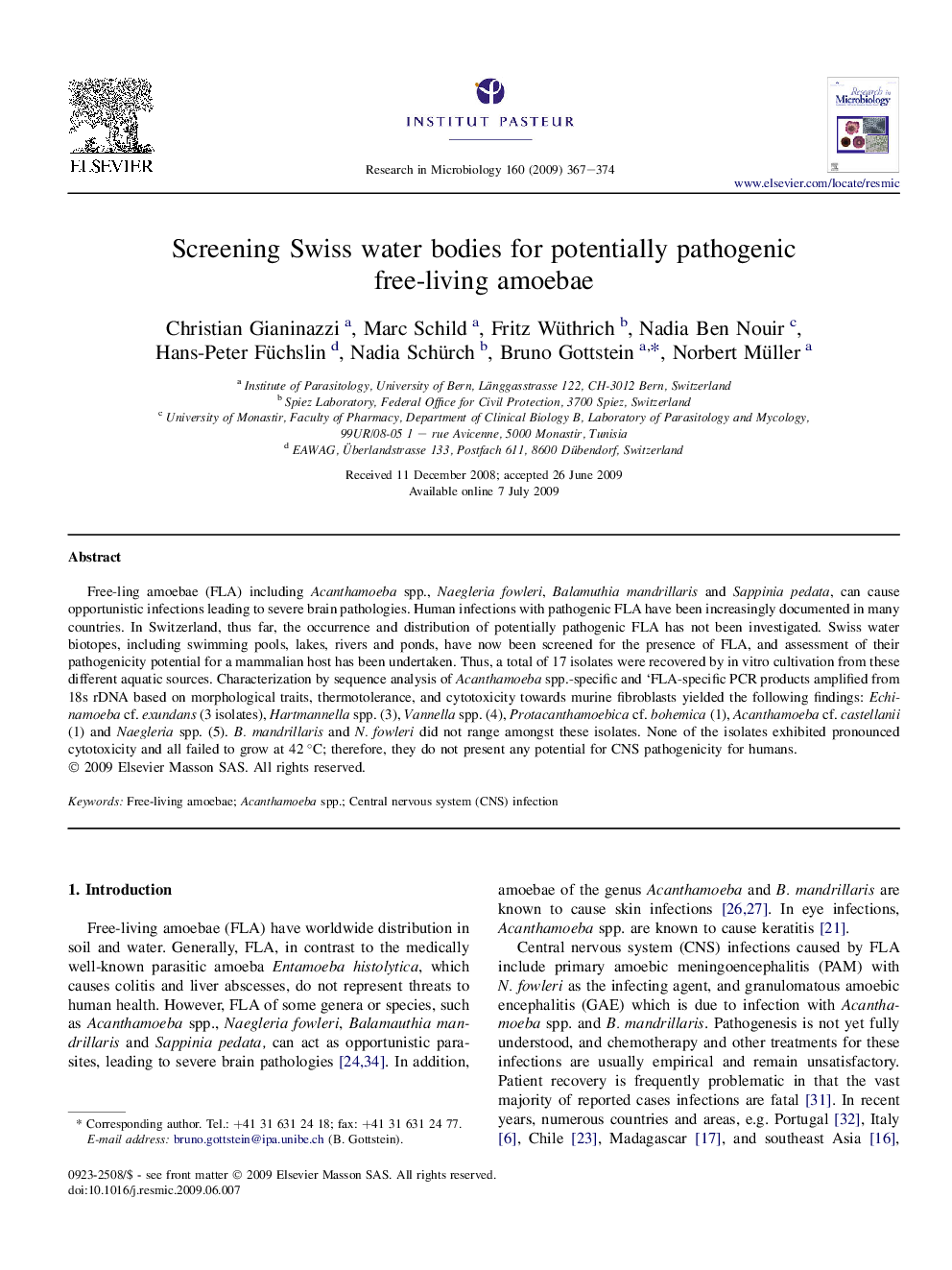| Article ID | Journal | Published Year | Pages | File Type |
|---|---|---|---|---|
| 4359147 | Research in Microbiology | 2009 | 8 Pages |
Free-ling amoebae (FLA) including Acanthamoeba spp., Naegleria fowleri, Balamuthia mandrillaris and Sappinia pedata, can cause opportunistic infections leading to severe brain pathologies. Human infections with pathogenic FLA have been increasingly documented in many countries. In Switzerland, thus far, the occurrence and distribution of potentially pathogenic FLA has not been investigated. Swiss water biotopes, including swimming pools, lakes, rivers and ponds, have now been screened for the presence of FLA, and assessment of their pathogenicity potential for a mammalian host has been undertaken. Thus, a total of 17 isolates were recovered by in vitro cultivation from these different aquatic sources. Characterization by sequence analysis of Acanthamoeba spp.-specific and ‘FLA-specific PCR products amplified from 18s rDNA based on morphological traits, thermotolerance, and cytotoxicity towards murine fibroblasts yielded the following findings: Echinamoeba cf. exundans (3 isolates), Hartmannella spp. (3), Vannella spp. (4), Protacanthamoebica cf. bohemica (1), Acanthamoeba cf. castellanii (1) and Naegleria spp. (5). B. mandrillaris and N. fowleri did not range amongst these isolates. None of the isolates exhibited pronounced cytotoxicity and all failed to grow at 42 °C; therefore, they do not present any potential for CNS pathogenicity for humans.
